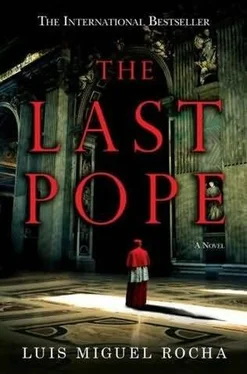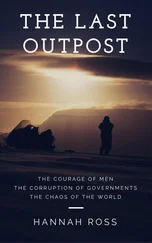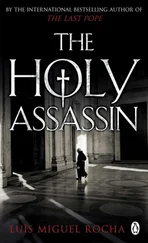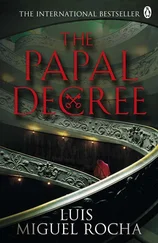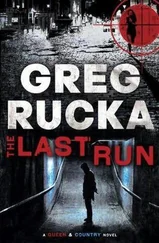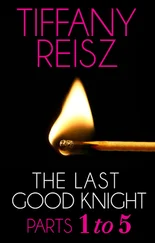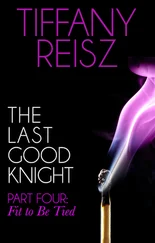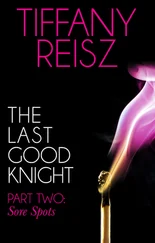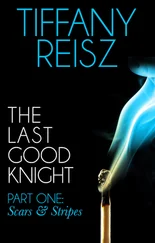
Luis Miguel Rocha
The Last Pope
Copyright © 2006 by Luís Miguel Rocha
Translation © 2008 by Dolores M. Koch
This book is dedicated to John Paul I (Albino Luciani), October 17, 1912-September 29, 1978.
And, as for you, my dear Patriarch,
Christ’s crown and Christ’s days.
– SISTER LUCÍA TO ALBINO LUCIANI, COIMBRA, PORTUGAL, JULY 11, 1977
May God forgive you for what you have done to me.
– ALBINO LUCIANI TO THE CARDINALS WHO ELECTED HIM POPE ON AUGUST 26, 1978
Why does a man run? What makes him run? He puts one leg in front of the other, the right foot follows the left. Some people seek glory. Others want to win a race or just lose a few pounds. But they always run for the same reason: they run for their lives.
Or at least that was what drove this man, his black cassock dissolving into the darkness of the place, running as fast as he could down the long interior staircase in the Secret Archives of the Vatican, a not-so-secret housing for supposedly secret documents. Those three imposing Vatican halls, and the buildings behind the Apostolic Palace, held documents of critical importance to the history of this small state and of the entire world. Only His Holiness, the pope, could examine them and decide who else could have access. The staff always said that any researcher could consult the Archives, but in Rome, and everywhere else on the planet, it was well known that not everybody was admitted, and those who were could not look at everything. There were many hidden niches in the Secret Archives’ fifty-three miles of shelves.
The clergyman dashed through a secret passageway, holding some papers yellowed with age. A sudden noise, distinct from his own steps, alarmed him. Had it come from upstairs? Downstairs? He froze, perspiration streaming down his face, but all he could hear was the accelerated rhythm of his own breathing. He ran toward his quarters in Vatican City-or Vatican country, rather-because that was what it really was, with its own rules, laws, beliefs, and political system.
Under his weak desk lamp, he scribbled his name-Monsignor Firenzi-on a large envelope into which he thrust the papers, then sealed it. The name of the addressee was illegible in the dim light. His hands, slippery with sweat, struggled to hold on to the envelope. Perspiration clouded his eyes so that he couldn’t make out even his own handwriting. Apparently finished, Monsignor left the room.
The bell at Saint Peter’s Basilica tolled-it was one o’clock in the morning-and then silence reigned again over the dark night. It was cold, but in his haste this servant of God did not even notice. Soon he was out on the walkways that led to Saint Peter’s Square, Bernini’s marvelous ellipse, with its Christian and pagan symbols. Another sound caught Monsignor’s ears. He stopped. Panting and in a cold sweat, he tried to catch his breath. It was surely the sound of steps. Maybe a Swiss Guard on nightly patrol. Monsignor Firenzi quickened his pace, still clutching the envelope. On any other night, he would have been in bed much earlier. As he reached the middle of the plaza, he glanced back and noticed a shadow in the background: not a Swiss Guard, or at least not dressed like one. The dark figure moved closer, but at the same steady pace. Now Monsignor Firenzi was running. He glanced back again, but at this time of night there was no one else but him and the briskly moving shadow.
HIS EXCELLENCY crossed the plaza and continued on Via della Conciliazione. Rome slept the sleep of the just, of the unjust, of the poor and the rich, of sinners and saints. Monsignor slowed down to a fast walk, and glanced behind him-the man was getting closer. Something glimmered in his hands. Firenzi saw it and started to run again, as fast as his aging joints would allow. There was a dull burst of sound and he had to grab, staggering, the first thing he saw. It was over so fast. The sound, and then nothing.
Still distant, the shadow got closer but the noise turned into a sharp pain darting through his ribs. Monsignor brought his hand to where it hurt, near his shoulder. He heard steps again; the shadow was approaching. His pain increased.
“Monsignor Firenzi, per favore.”
“Che cosa desiderano da me?”
“Io voglio a te.” The mysterious assailant took out a cell phone and spoke in a foreign tongue, perhaps from some eastern country. Monsignor Firenzi noticed the tattoo near his wrist: a serpent. Seconds later, a black car stopped beside the two men. The dark windows prevented anyone inside but the driver from being seen. Without violence or apparent effort, the man dragged the limp prelate into the car.
“Non si preoccupi. Non state andando a morire.”
Before climbing into the car, the man wiped the surface of the mailbox against which the prelate had fallen after being shot with such precision in the shoulder. Firenzi stared at him while pain racked his body. This is how it feels to be shot, he thought. The man was still wiping off any remaining clues from a few moments before. How ironic, to be wiping away the clues. How ironic. His whole body hurt. Then memories of his home came to him and he blurted out something in Portuguese.
“Que Deus me perdoe.”
The man got quickly into the car, which cruised slowly so as not to arouse suspicion. They were professionals, they knew what to do and how to do it. The street was quiet again, everything in order. The erasing of the clues was successful, leaving no trace of blood on the mailbox the prelate had leaned on, and where, almost miraculously and unnoticed by his pursuer, he had managed to insert the envelope he was clutching.
DON ALBINO SEPTEMBER 29, A.M., 1978
None of us lives to himself, and none of us dies to himself.
– ROMANS 14:7
For some people, routine crushed and ruined life. They hated the events and actions that constantly repeated themselves for seconds, minutes, days, weeks, and despised the repetitive scenario where they would line up again, as if on an assembly line.
For others, submission to fixed laws was a necessity not to be altered by chance elements. What was unthinkable or new should never change the order of their existence.
Still, life for both was wretched.
Sister Vincenza never complained about the lack of variety in her life. For most of the last twenty years the venerable old lady had been at the service of Don Albino Luciani. That was the will of God, and who would dare question the ways of the Lord? Moreover, it was now God’s will that after so many years Don Albino and Sister Vincenza would have a change of address. His Venetian home and his present one were 370 miles apart, but despite this severe disturbance in their lives, hardworking Sister Vincenza didn’t complain.
The nun was up early that morning. The sun had not yet unveiled the grandeur of the immense plaza, still in semidarkness, weakly lit by yellowish bulbs. At exactly four twenty-five, Sister Vincenza humbly started her daily chores, part of a routine that she was quickly replicating in her new home.
She carried a pot of coffee with a cup and saucer on a silver tray, depositing it on a table by the door to Don Albino Luciani’s sleeping quarters. The newly elected pope had undergone a surgical procedure for his sinusitis that left his mouth with a bitter, metallic taste, which he tried to mitigate with the coffee that Sister Vincenza brought him every morning.
Читать дальше
